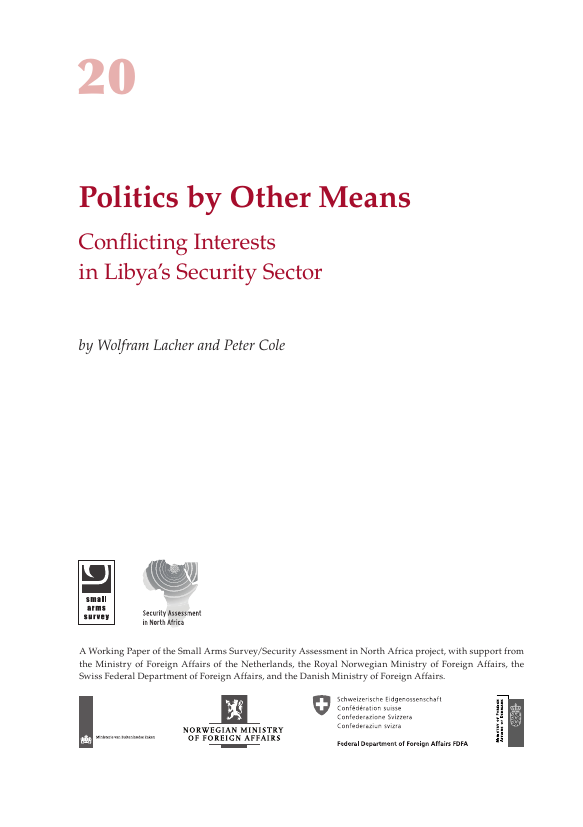
Politics by Other Means: Conflicting Interests in Libya's Security Sector (Working Paper 20)
After Qaddafi’s death and the subsequent declaration of independence in October 2011, Libya’s transitional authorities faced enormous challenges in the control and management of the various armed groups formed to fight the regime.
Competing interest groups within three institutions—the army, the Supreme Security Committee (SSC), and the Libya Shield Forces (LSF)—engaged in fierce power struggles over the future of the security sector. By October 2014, these power struggles gave rise to two rival governments, two military leaderships, and two very distinct claims to legitimacy.
Politics by Other Means: Conflicting Interests in Libya’s Security Sector, a Working Paper from the Small Arms Survey’s Security Assessment in North Africa (SANA) project, examines the rise and fall of hybrid security sector institutions in Libya, and the political interests at stake in security sector reform. It charts the evolution of the post-Qaddafi Libyan army, the SSC (the transitional government’s attempt to co-opt revolutionary fighters), and the LSF (the revolutionary fighters’ attempt to exert control on the transitional government), as well as their interaction with the transitional authorities.
The Working Paper is based on extensive fieldwork conducted in Libya between 2012 and 2014 that included interviews with key government and security officials, prominent national and local political actors, as well as the leaders and members of armed groups and local observers. Politics by Other Means offers an understanding of conflicts among the armed groups, as well as the continuing challenges involved in their participation in effecting meaningful security sector reform.